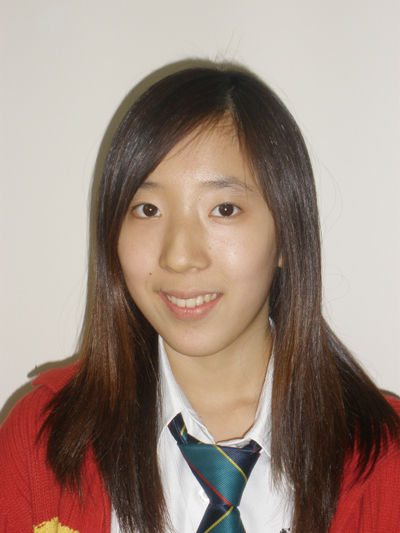Spendthrift or cheapskate?
Whether you have an addiction for designer headbands like Gossip Girl queen bee Blair Waldorf or you save your pennies for rainy days (or mutual funds), what you do with your money says a lot about you. Do teenagers save? What are they buying? And does nationality influence how you spend your cash? Grade 10 and 11 students from the Beijing World Youth Academy sat down with beijingkids to discuss that little thing called money.
What do you spend money on?
 Laura: I spend money on lunch, clothes and drinks.
Laura: I spend money on lunch, clothes and drinks.
Frank: My parents give me a set amount of money per semester, and I don’t usually save it. Eventually all the money goes to taxi cabs when I go to the CD Center, Wangfujing, places around Wangjing, or for playing football.
Ernest: I don’t get an allowance, but if I have a reason, my parents will give me money. If there’s more left, I usually save it for taxis or buying food.
YeiYoung: I get 100 kuai per month from my parents. About 40 percent of it I give to church, and the rest goes to clothes.
Does what country you’re from determine how you spend money?
 Laura: Based on the financial crisis, I don’t think Americans will be spending a lot of money. I might spend money on clothes or drinks, but places like Mango and Zara are considered expensive in China, and unless you take your parents to buy the clothes, you can’t afford it. And how much do you want to buy at Yashow since after awhile, everything is the same? Foreign kids living in China probably wait until they go to their home countries to buy their clothes.
Laura: Based on the financial crisis, I don’t think Americans will be spending a lot of money. I might spend money on clothes or drinks, but places like Mango and Zara are considered expensive in China, and unless you take your parents to buy the clothes, you can’t afford it. And how much do you want to buy at Yashow since after awhile, everything is the same? Foreign kids living in China probably wait until they go to their home countries to buy their clothes.
Frank: The people around them matter more than the country they’re from. Teenagers in the same place tend to spend money on the same thing, regardless of nationality. My hometown is not as big as Beijing, so I didn’t spend money on transportation – I spent it on video games and food.
Ernest: I agree with Frank. It doesn’t really depend on the country you’re from, but when you go to your home country, you buy things there.
YeiYoung: I think all girls spend money buying clothes, and the guys spend it on transportation.
Have you ever had a summer job?
 Laura: I used to teach English to Chinese students in my neighborhood. I charged RMB 50 an hour. Since I started making my own money at the time, I had some extra change for myself so if I wanted something I could save up and get it. I don’t feel so comfortable asking my parents for something when I know I don’t need it.
Laura: I used to teach English to Chinese students in my neighborhood. I charged RMB 50 an hour. Since I started making my own money at the time, I had some extra change for myself so if I wanted something I could save up and get it. I don’t feel so comfortable asking my parents for something when I know I don’t need it.
Frank: I used to do business. I used to come to China once a year, so I bought Chinese stuff, brought it back to my country and sold it. A lot of Chinese people in my hometown do the same thing! I saved part of my money, but I spent most of it on sunglasses.
YeiYoung: I taught English to Korean children for RMB 50 per hour. I really wanted to go on a Model United Nations trip, but it cost RMB 8,000. Through my job, I made RMB 5,200. I used RMB 200 on myself and put the rest towards the Model United Nations trip.
Is a career that makes a lot of money important to you?
 Ernest: I think the most important thing is that you like your job.
Ernest: I think the most important thing is that you like your job.
Laura: I agree, but money is a thing that you need to notice. I’m not for having a job that you don’t like but pays a large income, but I do think that people today think money is the key to happiness. And when your parents are old, you have to support them.
Frank: I love making money. If I’m making money, I love my job. There are a lot of people like that in the world.
YeiYoung: No matter how interesting your job is, you still have to be concerned about how much money you’re making. If there’s no income, how will you feed your children? What if your parents are getting old and your kids are growing up?
Laura: After college, you get a lot of jobs before you really reach success, so I think that right now, money isn’t very important in reference to a job that I really want to do.
YeiYoung: You can tell who has more money – not when you look at someone’s appearance, but when you look at the places they go for leisure. They might not understand why you can’t afford to go, as well.
Frank Tarimo is Chinese and Tanzanian and has lived in Beijing for nine years
American Laura Parrish has lived in Beijing for seven years.
Ernest Li is Chinese/British and has lived in Beijing 12 years
Korean YeiYoung Choo has lived in Beijing 12 years



